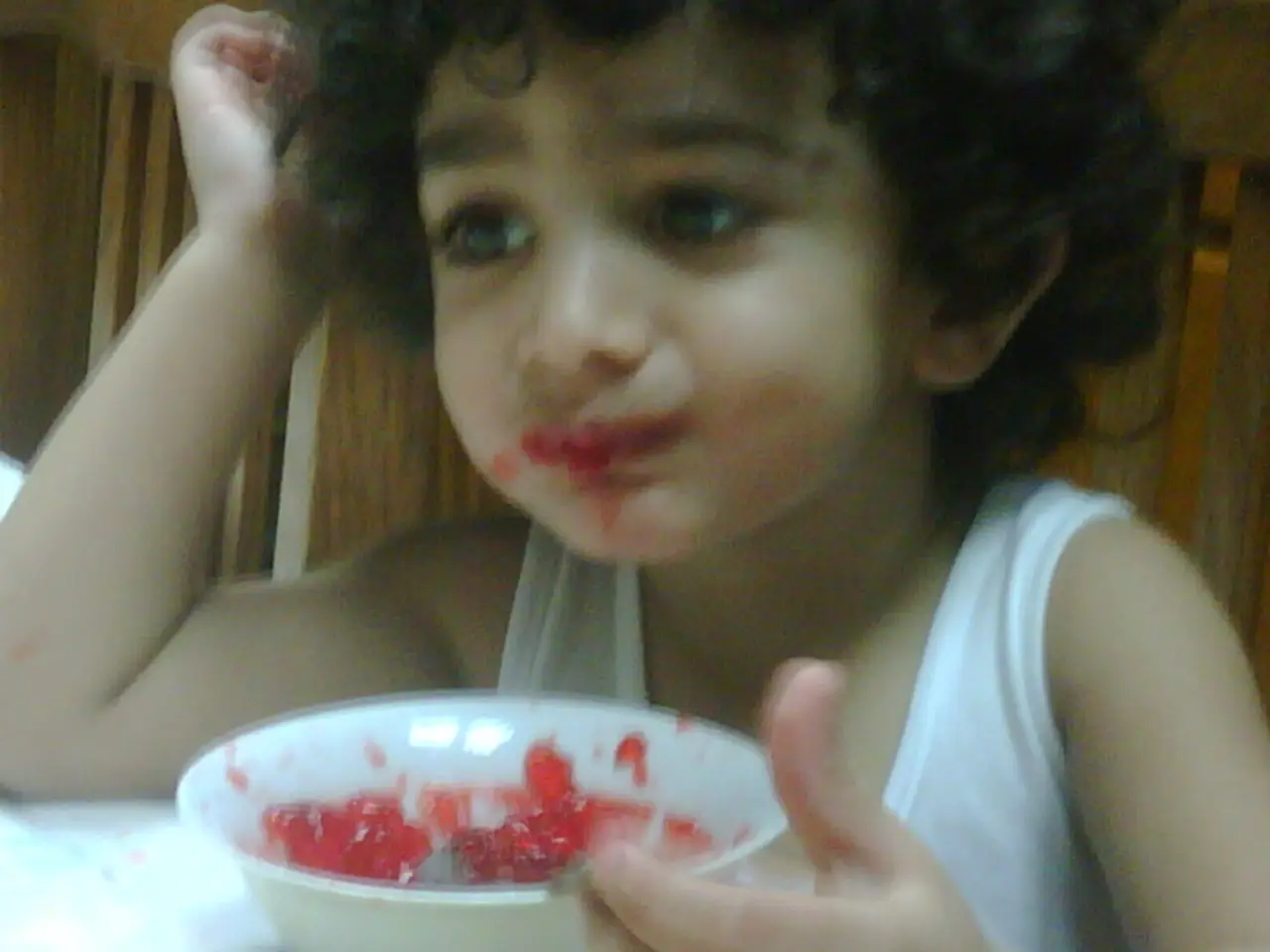Signs of potential pancreatitis in children: an explanation.
News Article: Managing Pancreatitis in Children
Pancreatitis, an inflammation of the pancreas, can be a challenging condition for children to contend with. Unlike in adults, the causes, symptoms, and treatment options for pediatric pancreatitis are distinct.
Causes
The most common cause of pancreatitis in children is genetic factors, with inherited genetic variants playing a significant role. Other causes include congenital abnormalities of the pancreatic or bile ducts and gallstones, which can block pancreatic drainage. Unlike adults, environmental factors such as alcohol and tobacco use are uncommon causes in children. Autoimmune pancreatitis, a rare form, involves autoimmune inflammation attacking the pancreas. Other causes can include trauma, infections, or systemic disease but are less common in pediatrics.
Symptoms
The symptoms of pancreatitis in children can be similar to a stomach virus, making the condition difficult to diagnose. Abdominal pain, usually in the upper or lower abdomen, often after meals, is a common symptom. Other symptoms include bloating and discomfort, loose stools or diarrhea, nausea and vomiting, and exocrine pancreatic insufficiency, which can cause symptoms like steatorrhea (fatty stools), weight loss, and nutrient deficiencies. Chronic pancreatitis often causes persistent or recurrent abdominal pain.
Treatment Options
The treatment for pediatric pancreatitis varies depending on the severity and duration of the condition. For acute pancreatitis, supportive care, including fasting to rest the pancreas, IV fluids, and pain management, is often necessary. Pain control may require opioids, but careful monitoring is necessary due to addiction risk. For exocrine insufficiency, pancreatic enzyme supplements can aid digestion and nutrient absorption. In severe chronic cases unresponsive to medical therapy, surgical intervention, such as total pancreatectomy with islet autotransplantation (TP-IAT), may be performed to remove the pancreas but preserve insulin production.
In summary, pediatric pancreatitis often results from genetic or anatomical factors and causes abdominal pain, digestive symptoms, and enzyme insufficiency. Treatment ranges from supportive care and enzyme supplementation to surgery in severe chronic cases. Long-term health issues can develop when pancreatitis doesn't heal or improve, and the condition can be extremely painful for children. It is essential to consult a pediatric gastroenterologist for proper diagnosis and treatment. If pancreatitis becomes recurrent or if there are concerns for obstruction by a gallstone causing pancreatitis, an MRI may be required. A simple blood test that looks for the elevation of two enzymes (amylase and lipase) is the best screening test for acute pancreatitis. An ultrasound may also be a helpful tool in evaluating the pancreas. Difficulty breathing can be a symptom of pancreatitis in children, and dehydration can occur due to vomiting. It is important to address these complications promptly to ensure the best possible outcomes for children with pancreatitis.
References: [1] "Pediatric Pancreatitis." Mayo Clinic, Mayo Foundation for Medical Education and Research, 11 Aug. 2021, https://www.mayoclinic.org/diseases-conditions/pediatric-pancreatitis/symptoms-causes/syc-20355699. [2] "Pancreatitis in Children." Johns Hopkins Medicine, The Johns Hopkins University, 14 Mar. 2022, https://www.hopkinsmedicine.org/health/conditions-and-diseases/pancreatitis-in-children. [3] "Pediatric Pancreatitis." Cleveland Clinic, Cleveland Clinic, 2022, https://my.clevelandclinic.org/health/diseases/16798-pediatric-pancreatitis. [4] "Pediatric Pancreatitis." Nemours Children's Health, Nemours Foundation, 2021, https://kidshealth.org/en/parents/pancreatitis.html. [5] "Pediatric Pancreatitis." National Organization for Rare Disorders, National Organization for Rare Disorders, 2021, https://rarediseases.org/diseases/pediatric-pancreatitis/.
- Managing health conditions like pancreatitis requires understanding their unique aspects in different age groups, such as in children.
- Science is continuously studying the causes of pancreatitis in children, with a focus on genetic factors and inherited genetic variants.
- Some cases of pediatric pancreatitis are linked to congenital abnormalities of the pancreatic or bile ducts and gallstones.
- Environmental factors like alcohol and tobacco use, which commonly cause pancreatitis in adults, are uncommon causes in children.
- Autoimmune pancreatitis, a rare form, can also affect children, with autoimmune inflammation attacking the pancreas.
- Symptoms of pancreatitis in children can mimic those of a stomach virus, making diagnosis challenging.
- Chronic forms of pancreatitis often cause persistent or recurrent abdominal pain and digestive symptoms.
- Treatment for pediatric pancreatitis varies depending on severity, ranging from supportive care, enzyme supplementation to surgery in severe chronic cases.
- Mental health concerns might arise due to the pain and discomfort associated with pediatric pancreatitis, emphasizing the need for workplace wellness programs.
- Other medical conditions, such as chronic diseases, cancer, respiratory conditions, digestive-health issues, eye-health problems, hearing issues, and neurological disorders, can impact a child's health and require management.
- Skin conditions, sexual health, and aging-related health issues are also essential aspects of children's health and wellness.
- Fitness and exercise, nutrition, and weight management play a crucial role in maintaining overall health and preventing chronic diseases.
- Parenting involves maintaining the health of children, and understanding conditions like pancreatitis can help ensure proper care.
- Proper management of pancreatitis and other medical conditions in children requires collaboration between medical professionals, parents, and the surrounding community, including therapies and treatments, Medicaid, and medical research organizations.




